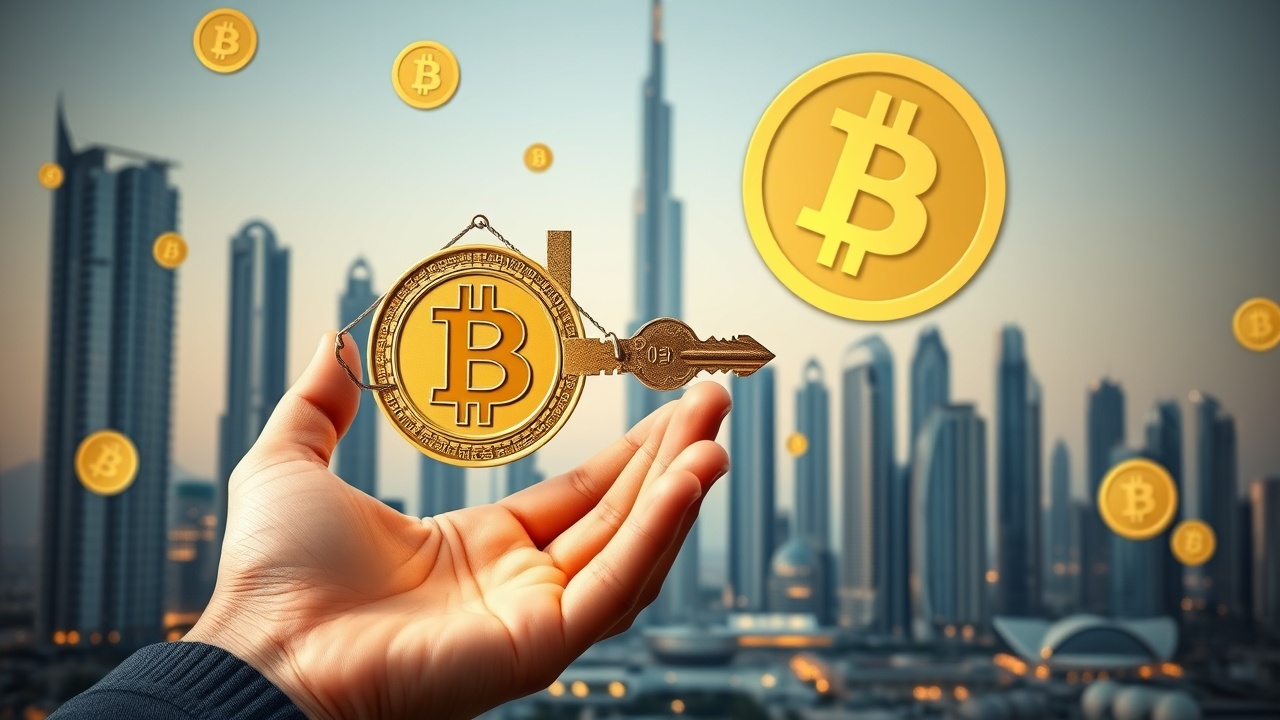Dubai’s Emergence in Cryptocurrency and Real Estate
Dubai is emerging as a leading player in the realm of cryptocurrency and real estate, thanks to the recent establishment of clear regulations guiding property purchases using digital currencies. Overseen by the Virtual Assets Regulatory Authority (VARA) and supported by the UAE Central Bank, these laws aim to facilitate smoother transactions for both local and international buyers interested in investing in Dubai’s vibrant property market.
Adoption by Major Developers
Major property developers like Damac and Emaar are now embracing innovation by accepting payments in popular cryptocurrencies such as Bitcoin (BTC) and Ethereum (ETH), as well as stablecoins. This shift not only simplifies the purchasing process but also opens doors for global investors looking for efficient ways to buy property in this luxurious city.
Regulatory Framework and Tokenization
Dubai’s stance as a cryptocurrency-friendly metropolis is well-established, extending its influence beyond casual transactions to high-value investments such as real estate. As cryptocurrency adoption continues to rise, the landscape for buying property in Dubai is evolving rapidly, now offering enhanced speed, affordability, and ease of access for international buyers.
The Dubai Land Department (DLD) has proactively embraced the tokenization of properties through partnerships with firms like Crypto.com, making it increasingly feasible to conduct real estate transactions utilizing various cryptocurrencies. In fact, a comprehensive guide for purchasing properties in Dubai with cryptocurrency has been established, outlining the rigorous regulatory framework, the developers who accept crypto payments, and the process by which buyers can effectively navigate the market.
Secure Transactions and Compliance
Dubai’s real estate market benefits from a robust regulatory environment. Since the introduction of VARA in 2022, major cryptocurrency exchanges and brokers have received licenses to operate, ensuring that transactions can be securely conducted. Furthermore, the Central Bank of the UAE has implemented regulations governing payment services, resulting in mandatory compliance checks and the necessity for conversions into UAE dirhams (AED) before any property registration can occur.
Navigating the Purchase Process
To navigate the complexities of purchasing real estate with cryptocurrencies, potential buyers are advised to engage real estate brokerages familiar with crypto transactions. Notable companies such as Engel & Völkers Dubai and Provident Estate are well-positioned to assist buyers in structuring contracts that are compliant with UAE regulations.
In terms of accepted cryptocurrencies, Bitcoin and Ethereum are the predominant choices among developers, with stablecoins like Tether (USDT) and USD Coin (USDC) also being popular due to their stability in value. Buyers should clarify with developers which specific cryptocurrencies are permitted and whether a conversion to AED will be necessary.
Advantages and Risks of Cryptocurrency Transactions
The process itself is straightforward: buyers should work with knowledgeable agents, engage in contract negotiations ensuring cryptocurrency payment terms are included, use approved platforms for converting digital assets to AED, undergo thorough compliance checks, and register the sale with the DLD. All transactions are formally recorded in AED, ensuring transparency and enforceability.
Using cryptocurrency for home purchases in Dubai offers numerous advantages, including quicker payment processing times, minimized transaction costs, and an accessible method for global investors to enter the real estate market without the usual banking hurdles. The use of blockchain technology also enhances the reliability and traceability of transactions, which is crucial for regulatory compliance.
However, potential buyers should be aware of risks associated with cryptocurrency, including market volatility and the rapidly changing regulatory landscape. Thus, engaging only with licensed and regulated entities for any cryptocurrency transactions is paramount to mitigate such risks.
Conclusion
As Dubai continues to position itself as a hub for crypto-driven real estate transactions, trends towards property tokenization and greater institutional involvement signal a transformation in how properties are bought and sold. This evolution towards a fully digital property ecosystem marks a significant milestone in Dubai’s ambitious vision for integrating cutting-edge technology within traditional markets, paving the way for a future where cryptocurrency-based real estate transactions are commonplace.




